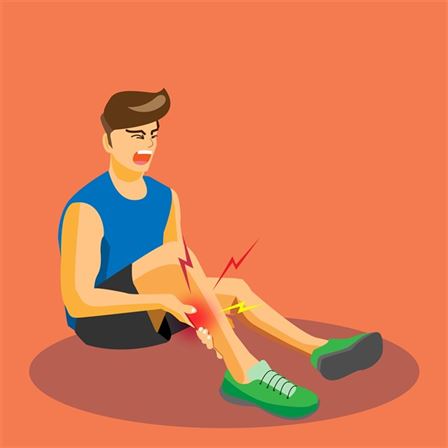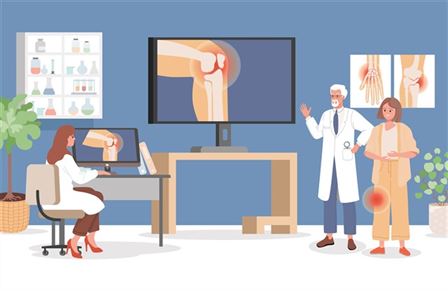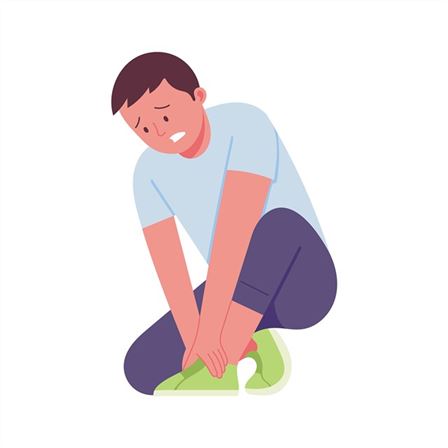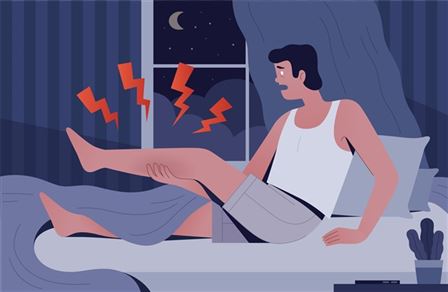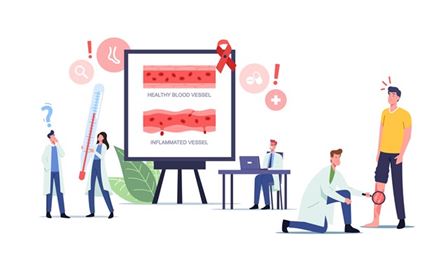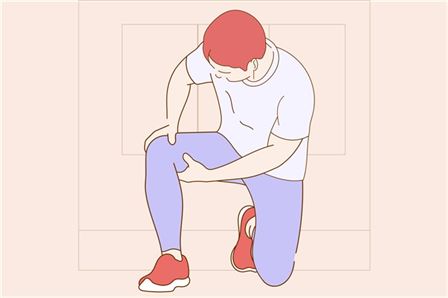Iron deficiency anemia leg pain is a condition where there is too little iron in the body. It can cause leg pain, fatigue, and other symptoms.
If you suffer from leg pain, you should see a doctor immediately. They can diagnose the problem and treat it.
Iron Deficiency Anemia Leg Pain Causes
Iron Deficient Diet
Iron levels that are low enough to be considered deficient may not show up on routine blood tests because they’re so small. The most common symptom of iron deficiency anemia is tiredness or weakness.
Normal iron levels range between 70-150 mcg/dl. If your level falls below 50mcg/dl, you have iron deficiency. Iron deficiency causes red blood cells to become smaller than normal. This makes them less able to carry oxygen throughout the body. When this happens, people feel weak and fatigued.
Another sign of iron deficiency includes pale skin. Additional signs of iron lack are dark circles under your eyes, poor concentration, headaches, dizziness, shortness of breath, constipation, diarrhea, nausea, vomiting, heart palpitations, muscle cramps, and swollen ankles.
The risk of iron deficiency increases with age and pregnancy, childbirth, menopause, heavy menstrual bleeding, certain medications, chronic illness, smoking, alcohol use, inadequate diet, lack of exercise, and stress.
The requirement for iron dietary intake must exceed about 10 milligrams per day for women ages 19 through 50 years old; 15 mg/day for those 51 to 70 years old; 20 mg/day for those 71 years old and older. Women who have had children need more than 30 mg/day.
Men also require at least 18 mg/day. If you don’t get enough iron, your red blood cells will become smaller and less efficient at carrying oxygen throughout your body. This leads to reduced energy and stamina.
Chronic Blood Loss
Iron absorption is affected by how much blood loss occurs over time. When this happens, the amount of iron absorbed decreases. In addition, if you lose large amounts of blood, you’ll absorb even fewer nutrients. The absorption of iron depends upon several factors:
How long has the person been losing blood? The loss of body iron is a common cause of anemia. Iron deficiency can be caused by bleeding, poor absorption, or increased losses from the GI tract. If you suspect that your patient may have IDA, ask about recent trauma to the abdomen and/or pelvis; if they answer yes, then perform a complete physical examination for signs of gastrointestinal tract hemorrhage.
If there are no obvious sources of bleeding, consider testing for ferric iron levels.
What Type Of Blood Was Lost?
The risk for iron deficiency increases with age, pregnancy, chronic illness, malabsorption syndromes, heavy menstrual periods, excessive exercise, certain medications such as anticoagulants, chemotherapy, radiation therapy, gastrectomy, inflammatory bowel disease, celiac sprue, Crohn’s disease, ulcerative colitis, diverticulosis, and short-bowel syndrome.
Is this new onset or worsening of symptoms? Severe iron deficiency anemia usually occurs in people who already have some degree of anemia. It does not typically occur suddenly but rather over weeks or months. In contrast, milder forms of anemia tend to develop more quickly.
Hereditary Hemochromatosis
People inherit one defective gene called HFE, which causes them to produce abnormal proteins that bind to normal ones, causing excessive iron accumulation in tissues such as the liver, pancreas, joints, muscles, pituitary gland, thyroid glands, and spleen adrenal glands, and brain.
Inherited hemochromatosis usually appears during childhood but sometimes develops later in life. Symptoms vary depending upon whether excess iron accumulates in organs or stays within the bloodstream.
Blood Disorders That Affect Red Cells Or Hemoglobin Levels
Symptoms of iron deficiency anemia are similar to those of many other conditions. If your leg pains persist for more than two weeks, make sure to get checked out by a physician.
Hemoglobin levels can be affected by several factors, including:
• Iron and vitamin B12 deficiencies
• Sickle cell disease or another blood disorder that affects red cells
• Chronic kidney failure
• Liver problems such as cirrhosis
• Malabsorption syndromes like celiac disease
Is The Person Taking Any Medication That Affects Digestion?
Iron equilibrium depends on adequate intake of dietary iron and intestinal uptake of heme iron. Medications that affect these processes include antihistamines, proton pump inhibitors, H2 blockers, antibiotics, nonsteroidal anti-inflammatory drugs, corticosteroids, cyclosporine, methotrexate, oral contraceptives, and zinc supplements. These agents decrease both absorption and utilization of iron.
The malabsorption of iron associated with IBD often leads to low serum transferrin saturation values. However, TSAT alone cannot distinguish between true iron deficiency and other causes of hypochromecemia. A combination of laboratory tests including hemoglobin level, reticulocyte count, total iron-binding capacity, percent transferrin saturation, and ferritin concentration is used to diagnose iron deficiency.
Can Low Iron Cause Leg Cramps?
Anemia leg cramps are characterized by pain in one or both legs accompanied by muscle weakness. They most commonly occur during prolonged standing or walking. Symptoms worsen when sitting down or lying flat. Evidence suggests that alcohol may be related to decreased venous return due to compression of veins by enlarged muscles.
Complications from iron deficiency can make the condition worse, including:
• Heart disease and heart failure
• Stroke
• Kidney problems
• Liver damage
• Bone loss
The best way to prevent anemia caused by low levels of iron is through a healthy diet with plenty of fruits and vegetables and lean meat and poultry. It’s important for women who have heavy periods to take extra care not to lose too much blood each month.
Can Low Iron Cause Muscle Spasms?
Iron muscle cramps are painful spasms of skeletal muscles. They are common among athletes because they cause them to stop exercising before their body has recovered sufficiently.
Iron muscle cramps are caused by dehydration. Dehydration causes the blood vessels to constrict and the blood flow to decrease. This leads to decreased oxygen supply to the muscles. The lack of oxygen causes the muscles to become weak.
The best way to prevent iron muscle cramps is to drink enough water during exercise. Drink plenty of water before, during, and after exercise.
How To Treat Iron Deficiency Without Drugs?
Treatment for iron deficiency without drugs includes eating foods rich in vitamin C or taking a supplement containing Vitamin B6. These supplements help your body absorb more iron from food.
If you have anemia due to low red cell count, take iron pills daily until your hemoglobin level reaches normal levels. Iron in excess can be toxic, so you must get only what you need.
What Causes Iron Deficiency In Women?
Women tend to lose iron faster than men do when they menstruate. Menstruation also reduces the amount of iron absorbed through the intestines. If you’re pregnant, you may not have as much absorbed iron as usual. You should eat foods high in iron if you want to avoid becoming anemic.
Genetic conditions such as sickle-cell anemia and thalassemias reduce the ability of cells to produce adequate amounts of hemoglobin. Some medications like antacids and antibiotics can interfere with the absorption of dietary iron.
Chronic conditions such as chronic kidney disease and inflammatory bowel diseases, which affect how efficiently the intestine absorbs nutrients, can lead to reduced iron intake.
Other factors include poor nutrition, inadequate exposure to sunlight, a certain medical condition, pregnancy, childbirth, breastfeeding, and aging.
Autoimmune Disorders
Chronic disorders that involve inflammation often result in increased production of antibodies called immunoglobulins. Immunoglobulin G, one type of antibody produced by the immune system, binds to free iron molecules circulating in the bloodstream. IgG then transports these bound iron molecules into tissues where they bind to transferrin receptors on the surface of macrophages. Macrophages engulf the iron-transferrin complexes and store them inside their cytoplasm.
A hereditary disorder is known as familial Mediterranean fever results in excessive release of proinflammatory cytokines. Having a family history of this disease increases your risk of developing it. The most common symptoms are:
• Fever lasting more than 3 days
• Swelling or redness around joints
• Muscle pain
• Abdominal pain
• Headache
• Nausea/vomiting
• Diarrhea
• Skin rash
Prolonged inflammation damages tissue and increases the risk of developing rheumatic heart disease. FMF patients who develop this complication usually require lifelong iron deficiency anemia treatment with anti-inflammatories.
Iron deficiency without anemia occurs in people with autoimmune disorders because the presence of autoantibodies causes damage to the intestinal mucosa. This leads to decreased uptake of iron from food.
Infectious Diseases
Some infectious agents cause diarrhea, vomiting, abdominal cramps, and loss of appetite. They increase the demand for iron while reducing its availability. For example, some bacteria secrete substances that block the absorption of iron. Other infections destroy intestinal villi that normally allow efficient absorption of iron.
In some cases, autoimmune disorders can damage the liver and kidneys. Liver failure occurs when large numbers of hepatocytes die. Kidney failure occurs when there isn’t sufficient filtering capacity to remove waste products from the blood volume.
Restless Legs Syndrome
Anemia iron deficiency is common among people suffering from restless legs syndrome. RLS causes unpleasant sensations in the limbs, including itching, burning, tingling, numbness, heaviness, cramps, and pain. The symptoms are worse at night and improve while lying down.
They worsen with movement and activity. Restlessness is another symptom associated with RLS. People with RLS feel compelled to move their bodies even though doing so makes them uncomfortable.
Losses of iron occur because the body uses up its stores more quickly than normal. This leads to low levels of red blood cell formation. As a result, fewer oxygen-carrying units travel throughout your body.
RLS affects about 10% of women during childbearing years. It tends to run in families. There’s no cure for RLS, but treatments help manage the problem.
Upset Stomach Issues
A digestive condition is another iron deficiency symptom caused by an upset stomach or stomach ulcer. These issues cause you to lose appetite and eat less food. You also have trouble absorbing vitamins and minerals.
Iron supplementation can address some of these risk factors of severe iron deficiency anemia. Iron supplements include ferrous sulfate, which contains elemental iron; ferric pyrophosphate; and ferrous gluconate. Ferrous fumarate is used only if other forms aren’t available.
The best way to prevent iron deficiencies is through diet. An uptake in sources of iron includes rich foods such as meat, poultry, fish, beans, lentils, nuts, seeds, whole grains, fruits, vegetables, and dairy products that will provide adequate amounts of iron.
Conclusion
In conclusion, iron deficiency anemia leg pain is one of the most prevalent health problems worldwide. In fact, almost half of all adults suffer from iron deficiency anemia. An extra iron deficiency can lead to serious complications like kidney failure, stroke, congestive heart failure, and death if left untreated.
Fortunately, iron deficiency anemia is easily treated using oral iron tablets and a healthy diet. However, before taking any supplement, consult your doctor and nutritionist Cosmic Mike first. They should evaluate your medical history and perform tests to determine whether you need additional testing.
[wps_products product_id=”1638128058403″ html_template=”product.php”]


